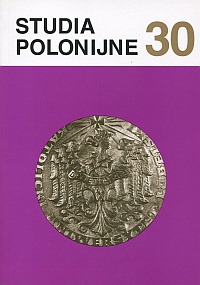Imigracja – w czym zagrożenie, a w czym szansa dla Unii Europejskiej
Main Article Content
Abstrakt
It is doubtless that mass immigrations are a factor with many far-reaching consequences for the nations and for the regions where they occur. In the present article attention is focused on the observable and potential cultural and social effects of migration for the European Union as a whole as well as for its particular member countries. The effects may be evaluated from the point of view of the interest of the target countries and regions, including the multi-national structure that is being created, that is the European Union.
The European Union has been described and has been appraised as a protector of safety and prosperity, that is de facto it has been presented as an exclusive Club of the Wealthy. Certainly safety and prosperity are desirable values, and one can only be proud of their acceptance and realization – which was the intended and, as it turns out, fully realized aim of forming the Commonwealth. However, without the values that were typical of the ethos that determined the peculiarity and greatness of the European civilization in the past, our Club is poor despite its material well-being and, what is more, it lacks the cultural basis for surviving. But it is doubtless that the European ethos will be revived only when common citizens and the creators of the Club working together will go back to the forgotten values and ideas, and the impulse for it may only be education and self-education.
Immigration to the UE is one of the factors that may contribute to reconstructing the European ethos. Newcomers, when they become citizens of member countries of the European Union, and in this way also members of the European Union, should at the same time have an opportunity to create their new European identity, which is conditioned by the existence of basic European values and ideas, to which they could refer. Otherwise the formal Union citizenship of such people will not be complemented by their European identity. They will only remain members of the Club of the Wealthy and their European identity will be reduced to this. This perspective urges us to think of what makes us Europeans, and what – as Europeans – we may offer to the newcomers arriving from other countries. Up till now our ideology of tolerance and openness, which we are proud of, first of all seems to hide the fact that we do not have much to offer to immigrants. Our openness – if it is real – may hide our emptiness, and our tolerance may disguise our indifference towards others, including newcomers.

